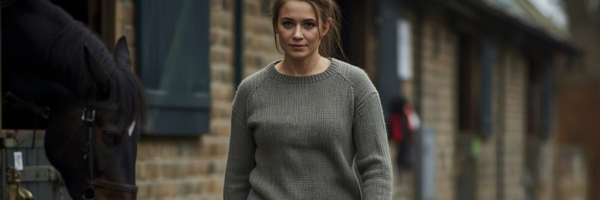
Do you find yourself saying yes when you should be saying no?
When you work for yourself, especially as an equine freelancer, it can be tempting to say “yes” to every job that comes your way, particularly in the early days when you’re eager to build your reputation, gain experience, and grow your income. But one of the most valuable lessons you’ll learn in freelancing is that saying no can actually be one of the best things you do for both your business and your well-being.
Why Saying Yes to Everything Doesn’t Work
At first, saying yes to every opportunity might feel like the right move. After all, more work means more experience and income, right? But over time, this approach can quickly lead to burnout. The equine world is physically demanding, and if you don’t give yourself time to rest and recover, you’ll soon find yourself exhausted, run down, and unable to give clients your best work.
Worse still, burnout can leave you unwell and unable to work at all, leading to both financial stress and guilt over letting clients down. Freelancing should give you freedom, not make you feel trapped in an endless cycle of overwork.
Protecting Your Time and Enjoyment
Part of being self-employed means setting boundaries and sticking to them. Schedule time off for yourself, whether it’s a day for rest, a weekend away from the yard, or simply a few hours to recharge. Without it, the enjoyment of what you do can start to fade.
When you constantly say yes, you risk feeling resentful or undervalued, especially if you’re running from one job to the next with no break. Remember why you started freelancing in the first place: was it to have control over your work, your hours, and your happiness?
Standing Firm on Your Prices
Learning to say no isn’t just about workload; it’s also about self-respect. If a client tries to negotiate your prices down, it’s okay to politely but confidently decline. You’ve set your rates based on your skills, experience, and costs, and a fair client will respect that.
If someone doesn’t value your time or expertise, they’re not your ideal client. The right clients will understand that professional work deserves professional rates.
Saying no doesn’t make you unhelpful; it makes you smart. It shows that you respect your own limits, your worth, and your health. Learning to say no will help you sustain your energy, protect your love for the work, and build a stronger, more professional business in the long run.
Take care of yourself first; your clients (and your horses) will thank you for it.

